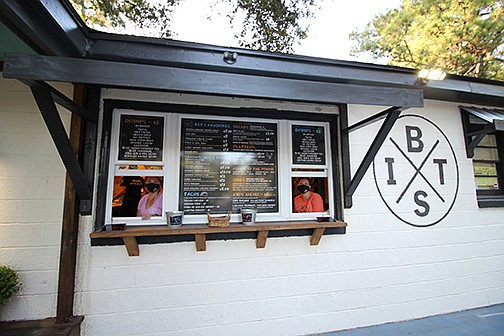NEW YORK -- It looks like something to celebrate: small businesses posting "Help Wanted" signs as the economy edges toward normalcy. Instead, businesses are having trouble filling the jobs, which in turn hurts their ability to keep up with demand for their products or services.
Owners say that some would-be workers are worried about catching the coronavirus or prefer to live off unemployment benefits that are significantly higher during the pandemic. Child care is another issue -- parents aren't able to work when they need to tend to or home-school their children. For some people, several factors go into their decision not to seek work.
When Steve Klatt and Brandon Lapp set up interviews for their restaurant and food truck business, they're lucky if one out of 10 or 15 applicants comes in.
"The people who do show up, all assume their unemployment is running out," said Klatt, whose business, Braised in the South, is in Johns Island, S.C. The maximum weekly unemployment benefits in the state are $626 including $300 in federal coronavirus relief payments; in some states, maximum unemployment is more than $700 a week.
[CORONAVIRUS: Click here for our complete coverage » arkansasonline.com/coronavirus]
Klatt and Lapp need 20 people to run the business well but have only five employees. Former chefs, the owners and their wives are working in the kitchen and on the truck to keep things running. Klatt and Lapp recently decided to curtail their Sunday hours and close Mondays to give everyone a break.
"The hit to the bottom line will be noticeable, but it's not worth burning out the few awesome people we do have working for us," Klatt said.
OBSTACLES
Businesses of all sizes are struggling with hiring even with millions of Americans unemployed and as increasing numbers of people get vaccinated and look forward to a more normal life. A survey taken in late March shows that 6.3 million didn't seek work because they had to care for children, and 4.1 million said they feared contracting or spreading the virus.
But smaller companies that often can't offer pay and benefits as generous as larger companies have a tougher time.
"A shortage of talent is nothing new for small businesses, but the circumstances surrounding this shortage are entirely different," said Jill Chapman, a consultant with Insperity, a human-resources provider.
The National Federation of Independent Business found in a March survey of its own members that 42% had job openings they couldn't fill. Owners cited higher unemployment benefits as one factor. And a study released last month by the National Bureau of Economic Research found that a 10% increase in unemployment benefits during the pandemic led to a 3.6% drop in job applications.
"Unemployment benefits allow workers to be able to wait longer before they take a job, which can make hiring harder," said Ioana Marinescu, a University of Pennsylvania professor who co-wrote the study.
Companies whose work is done inside homes -- plumbers, contractors and pest control businesses -- find many prospective hires are afraid of contracting the virus on a job. Meanwhile, demand for their services is up because there's more wear and tear on houses and apartments as people spend more time at home.
Economist Joe Brusuelas said that child care is another issue that may extend owners' struggles to find workers.
"Until the schools are reopened and avenues of child care normalized, small firms in general, as well as food, beverage, leisure and hospitality, in particular, are going to face staffing challenges until later this fall at the earliest," said Brusuelas, chief economist with the consulting firm RSM.
'A HOT MESS'
Jillian Melton was laid off from a Seasons 52 restaurant in Memphis last spring when the pandemic shut the restaurant down. Melton, who had worked at the restaurant for seven years, can't work a regular schedule; she has three children at home from school and she's caring for her 93-year-old grandmother. Babysitters and nurses are in short supply.
Melton said employers need to understand that many workers have compromised immune systems or limited availability because schools and day care centers are closed. Some people, upended by the pandemic, are just looking for new lines of work, she said.
"All of it is just a hot mess," she said.
Child care is one reason why the pool of available workers has shrunk dramatically at Let Mommy Sleep, which hires nurses and health aides to provide in-home care for babies and give new mothers a respite. Founder Denise Stern said that some of her caregivers want to work overnight and sleep during the day, but if they have their own children to care for, that's not possible.
Revenue is down 30% at Filter King in Miami. Demand for air filters is jumping as people work from home and run their air conditioners more, but owners Mike Jacob and Rick Hoskins need to double their workforce of 20 to keep up with orders.
"The unemployment benefits continue and it's hard to get people off the couch and into the warehouse," Jacob said.
But even when people are willing to work, Filter King is at a disadvantage compared with companies that can pay more, Jacob said. He's lost employees and candidates to a competitor funded by a venture capital firm.
